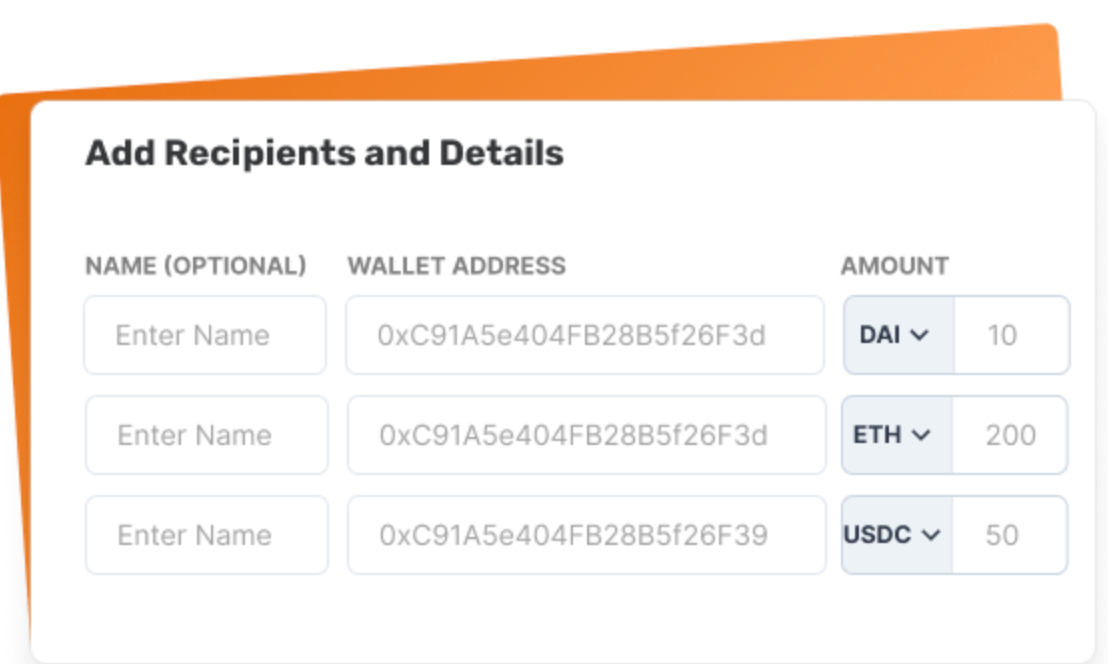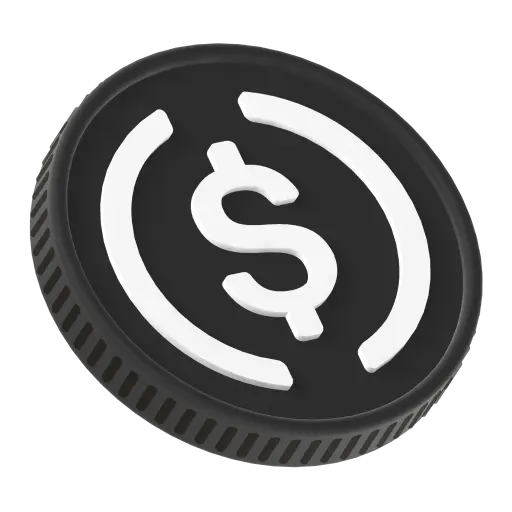
With Bulla Banker, you can process multiple payments to different wallets simultaneously.
Simply upload a group of transactions in a csv file or re-use a previous group. Once uploaded, you can execute the transactions using Bulla or SAFE, and they are automatically documented in the user’s dashboard for a streamlined Web3 payroll experience.
If you’re a SAFE user, you can use the bundle feature to execute batch transactions all at once.
For the EOA or Externally Owned Address, you can save time by uploading your transactions all at once.
Bulla makes batch payments quick and easy:
- Transact with any ERC-20 token
- 14 networks including ETH and Polygon
- Gnosis Safe and Wallet Connect compatibility
And Bulla documents and organizes those transactions:
- Add a description for both you and your recipient to see and remember the context for a payment.
- Add custom tags for easy searching
- Add an email to alert the recipient you have made an instant payment.
- Make instant payments in Bulla batch for monthly payments where invoices are not required.

Batch payments
In a Web3 world, handling payroll often means manually verifying individual wallet addresses, ensuring that the right amount is being paid, and then making payments one-by-one. This doesn't even include recording the payments in your accounting system.
This process is slow, error-prone, and inefficient. With Bulla, you can pull up last month's payments and pay everyone in one go. The payments are automatically registered in the blockchain. At any time, you can export a report of all the payments made, which can be especially useful during tax time.
Web3 payroll problems solved
The rise of crypto and the Web3 economy has greatly increased the number and variety of transactions being made. Tracking those transactions, however, has become complex and chaotic.
Tracking payroll expenses can pose specific challenges, especially when you consider all the different ways employees can be paid in Web3. For example, an employee might be paid in cryptocurrency, or they might be paid in a token that's used on a specific platform.
This means you might be making payments to wallet addresses which can change from one payday to the next. In a traditional payroll system, you would likely use software that is connected with a TradFi bank, a third party that can track payments in a limited number of currencies. In Web3, you could have dozens, if not hundreds, of wallet addresses that you need to keep track of.
Employees also need to track any taxes that are owed on cryptocurrency salaries. In the United States, for example, if you are paid in cryptocurrency, you are subject to capital gains taxes. That means you need to track the cost basis of the cryptocurrency you receive, as well as any gains or losses made when you convert it to cash.
Using Bulla’s batch payment features helps streamline and organize payroll, freeing up time for businesses to focus on growth.
Source-of-truth accounting
Web2 and Web2/Web3 hybrid systems typically rely on users setting up accounts so they can collect and store vast amounts of personal and financial data, a complicated and error-prone process which leaves you vulnerable and exposed.
Bulla Banker leverages the blockchain to streamline the process, put you in charge and so maximize security and efficiency. All transactions on Bulla are instantly updated, transparent and immutable. There is no third party processing your payments. Your are in control and have the overview.
DAO treasuries
The decentralized nature of DAOs presents challenges for every DAO treasurer paying employees, covering expenses, and trying to stay tax compliant. Bulla is multi-sig wallet compatible and integrated with Gnosis Safe. Users can also upload csv files, making it easy for DAO treasurers to invoice as well as make and record payments to as many contributors as is needed.



